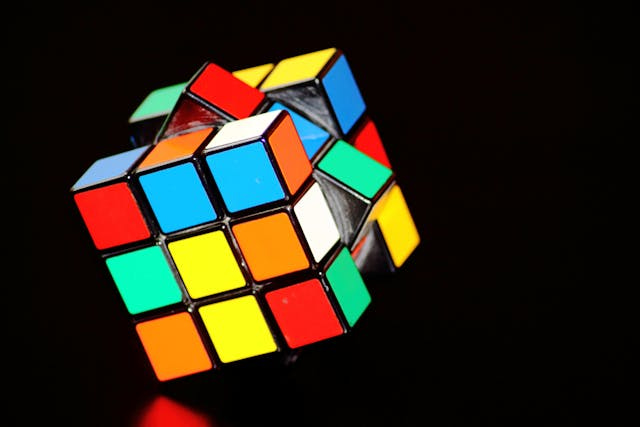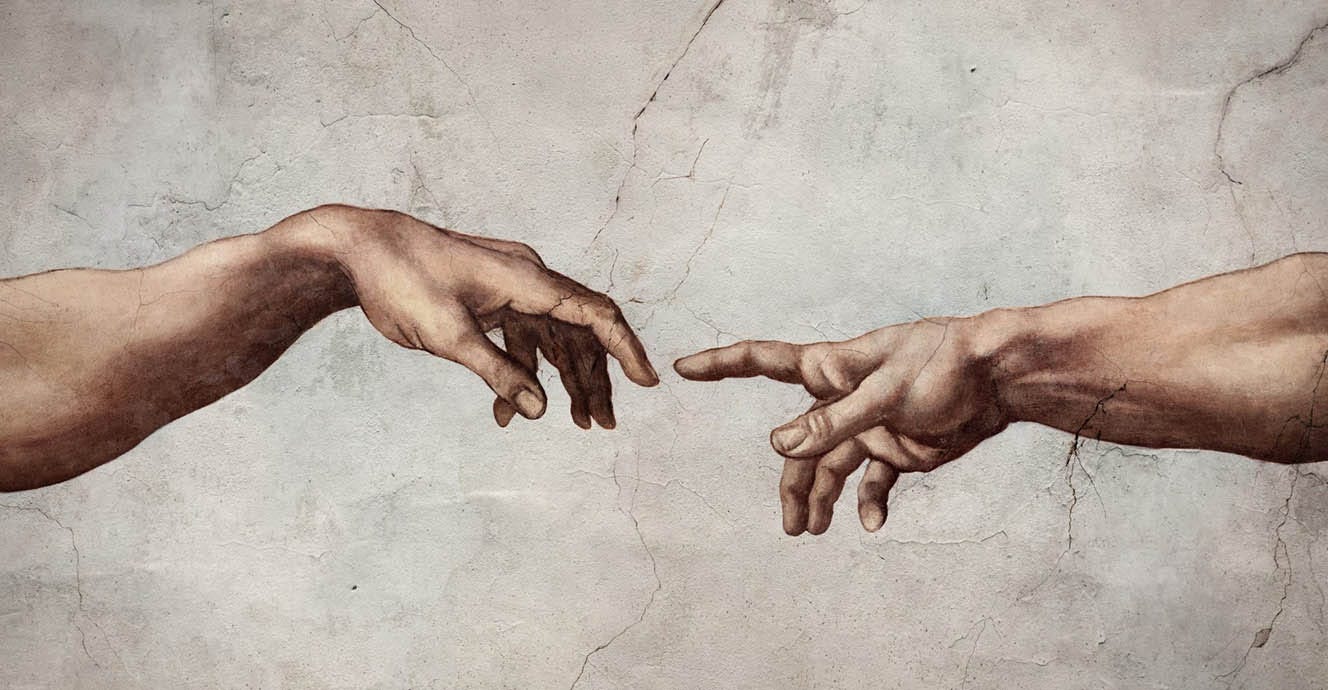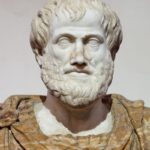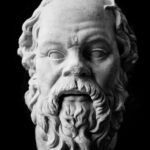A transformation of meaning: from inspired mad people to high IQ.
The short answer is yes, but it is worth spending some more time with this article and the concept of genius! The word and its meaning has a remarkable history and as it happens often with human concepts, it has undergone a significant transformation throughout history.
The Greeks originally regarded geniuses inspired mad people. Aristotle famously said, “There is no genius without having a touch of madness”. Most notable example from this culture is Socrates, the philosopher. He claimed to have daimonion (meaning spiritual or supernatural), an inner voice, that warned him against wrong decisions. The voice did not give its reasons and in case of silence Socrates interpreted it as an approval. He himself considered it a deity.
The Greeks thought that individuals considered geniuses received a special destiny from the gods. This “madness” of poets, philosophers or priests was a form of divine inspiration. This divine power or creative ecstasy helped to overcome the limits of rational thinking and as such the term mania was rather meaning irrational than pathological.

When Romans first met with the concept of the Greek daimonion, they translated and incorporated the word and its meaning, as genius. The Romans did not associate the concept of genius with extraordinary talent. For them it was “merely” a divine spirit accompanying each individual, shaping their personality and inherent abilities.
As time passed the meaning of genius gradually shifted toward a more secular perspective, increasingly associated with natural talent and remarkable capabilities of a few. The modern understanding of genius took shape during the Enlightenment in the 18th century. By this time the concept moved away from divine inspiration towards the exceptional human qualities, profound creativity and intellect.
In recent times, with the scientific attempt to measure intelligence mainly with Intelligence Quotient (IQ), the meaning of genius narrowed significantly. Today, genius is associated with intellectual ability, creativity and ability to apply imaginative thinking to any situation.

The term musical genius is subjective, but most of the time we think of those whose talent stands out. There are some key attributes we can name in the identification of musical geniuses. Such musicians are standing out or even unique in the following areas
Impact and emotional depth: their music is full with emotional complexity and intensity, they have unique ways to connect and influence listeners.
Originality and innovation: they have the power to push boundaries, introduce new ideas and techniques.
Technical ability: they often have supreme mastery of their musical instrument(s).
Musical and compositional intelligence: deep, almost transcendent understanding of musical building blocks, compositional techniques, sensitivity to sound and vibrations, the ability to associate sound with beauty and feelings.
Influence: they not only influence their peers, but they remain powerful and relevant for generations to come.

Was Beethoven a genius? Yes, he was. Today’s science estimates his IQ to be above 135 or even 140, which means top 1% in human intelligence. But his genius goes beyond the intellect! Not only he ticks all the boxes above, but his degree of aesthetic sensibility in music, his originality, his creativity, his persistence and desire to excel despite his loss of hearing, his belief in his own powers, his always raising and raging human spirit made him unique not only in music, but in human history.
For me, he was a genius in the Greek sense, a holy mad-person, touched by God. He talked uniquely his understanding of Life, without words, through music alone.




